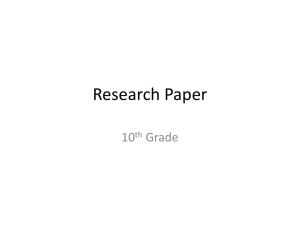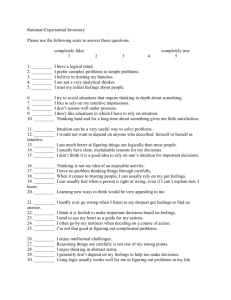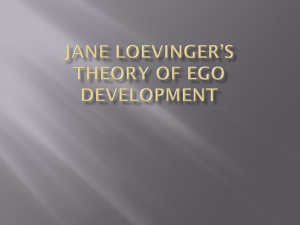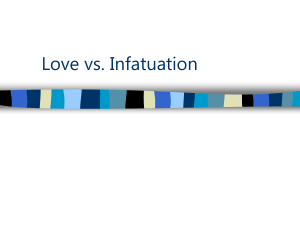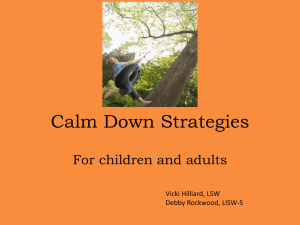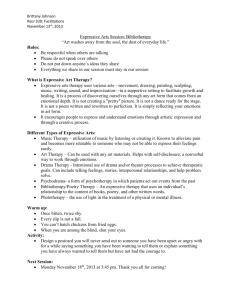So, What do the Keirsey Letters Mean
advertisement
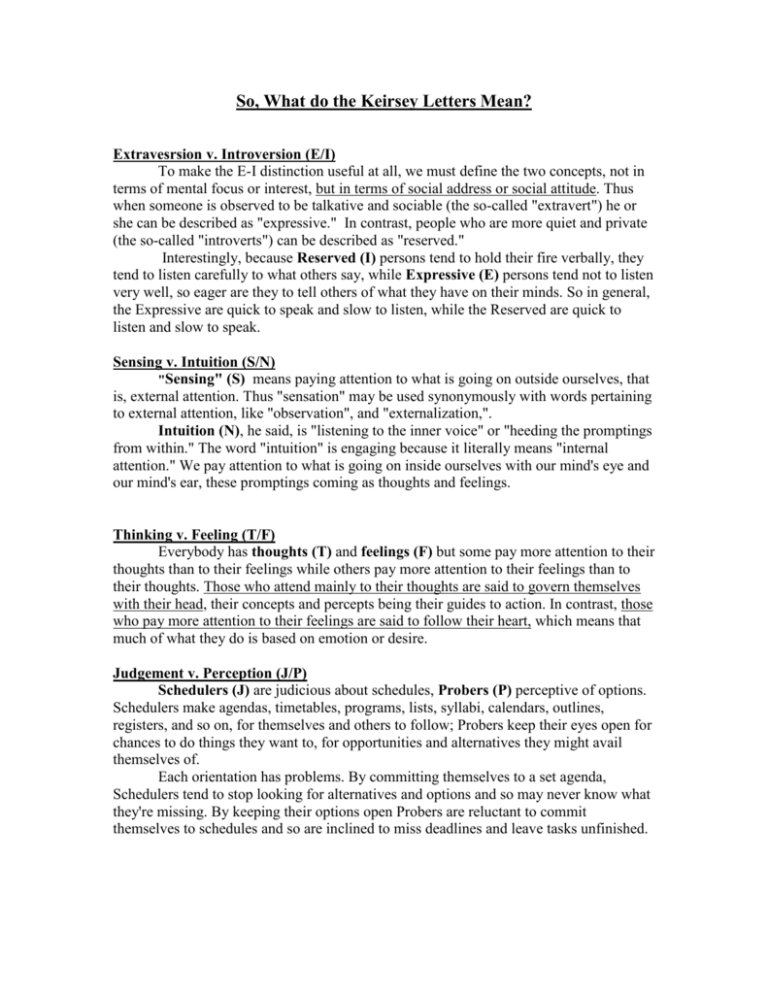
So, What do the Keirsey Letters Mean? Extravesrsion v. Introversion (E/I) To make the E-I distinction useful at all, we must define the two concepts, not in terms of mental focus or interest, but in terms of social address or social attitude. Thus when someone is observed to be talkative and sociable (the so-called "extravert") he or she can be described as "expressive." In contrast, people who are more quiet and private (the so-called "introverts") can be described as "reserved." Interestingly, because Reserved (I) persons tend to hold their fire verbally, they tend to listen carefully to what others say, while Expressive (E) persons tend not to listen very well, so eager are they to tell others of what they have on their minds. So in general, the Expressive are quick to speak and slow to listen, while the Reserved are quick to listen and slow to speak. Sensing v. Intuition (S/N) "Sensing" (S) means paying attention to what is going on outside ourselves, that is, external attention. Thus "sensation" may be used synonymously with words pertaining to external attention, like "observation", and "externalization,". Intuition (N), he said, is "listening to the inner voice" or "heeding the promptings from within." The word "intuition" is engaging because it literally means "internal attention." We pay attention to what is going on inside ourselves with our mind's eye and our mind's ear, these promptings coming as thoughts and feelings. Thinking v. Feeling (T/F) Everybody has thoughts (T) and feelings (F) but some pay more attention to their thoughts than to their feelings while others pay more attention to their feelings than to their thoughts. Those who attend mainly to their thoughts are said to govern themselves with their head, their concepts and percepts being their guides to action. In contrast, those who pay more attention to their feelings are said to follow their heart, which means that much of what they do is based on emotion or desire. Judgement v. Perception (J/P) Schedulers (J) are judicious about schedules, Probers (P) perceptive of options. Schedulers make agendas, timetables, programs, lists, syllabi, calendars, outlines, registers, and so on, for themselves and others to follow; Probers keep their eyes open for chances to do things they want to, for opportunities and alternatives they might avail themselves of. Each orientation has problems. By committing themselves to a set agenda, Schedulers tend to stop looking for alternatives and options and so may never know what they're missing. By keeping their options open Probers are reluctant to commit themselves to schedules and so are inclined to miss deadlines and leave tasks unfinished.
